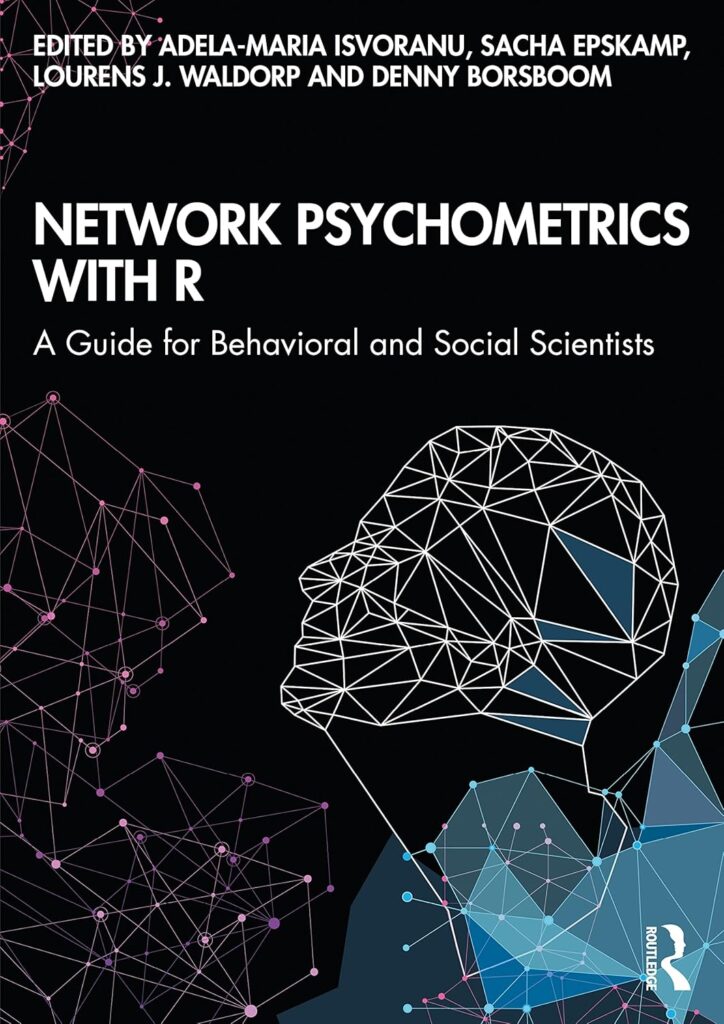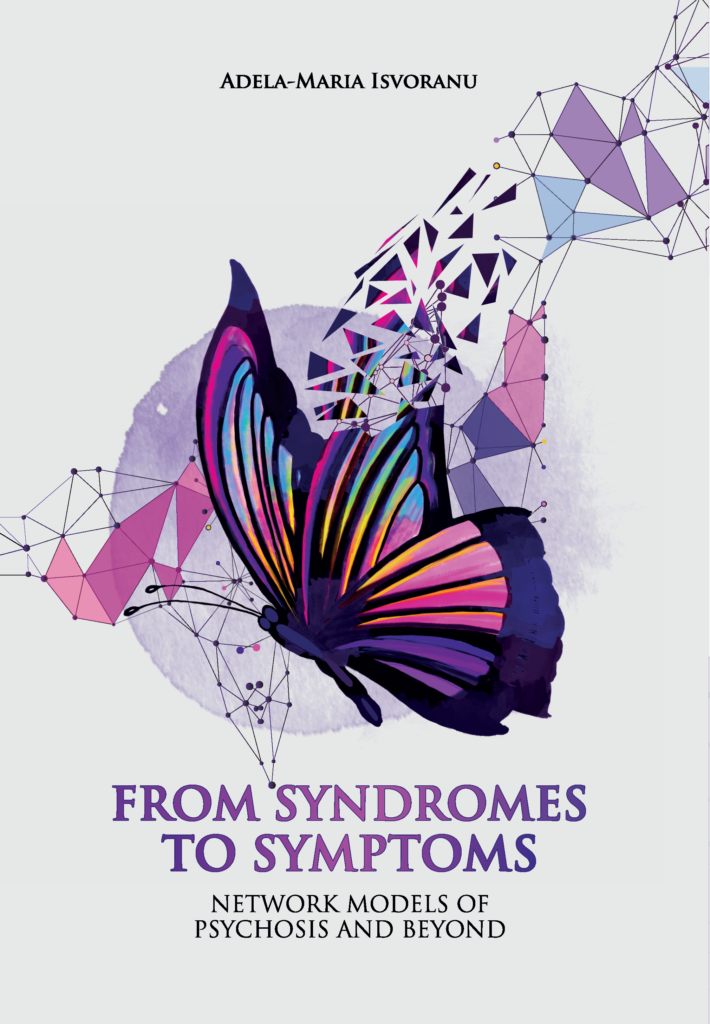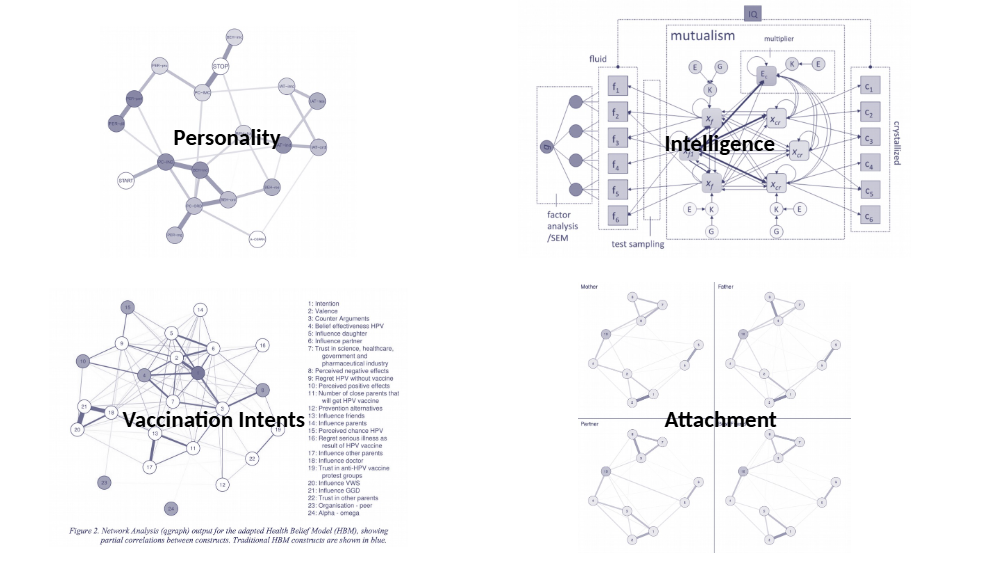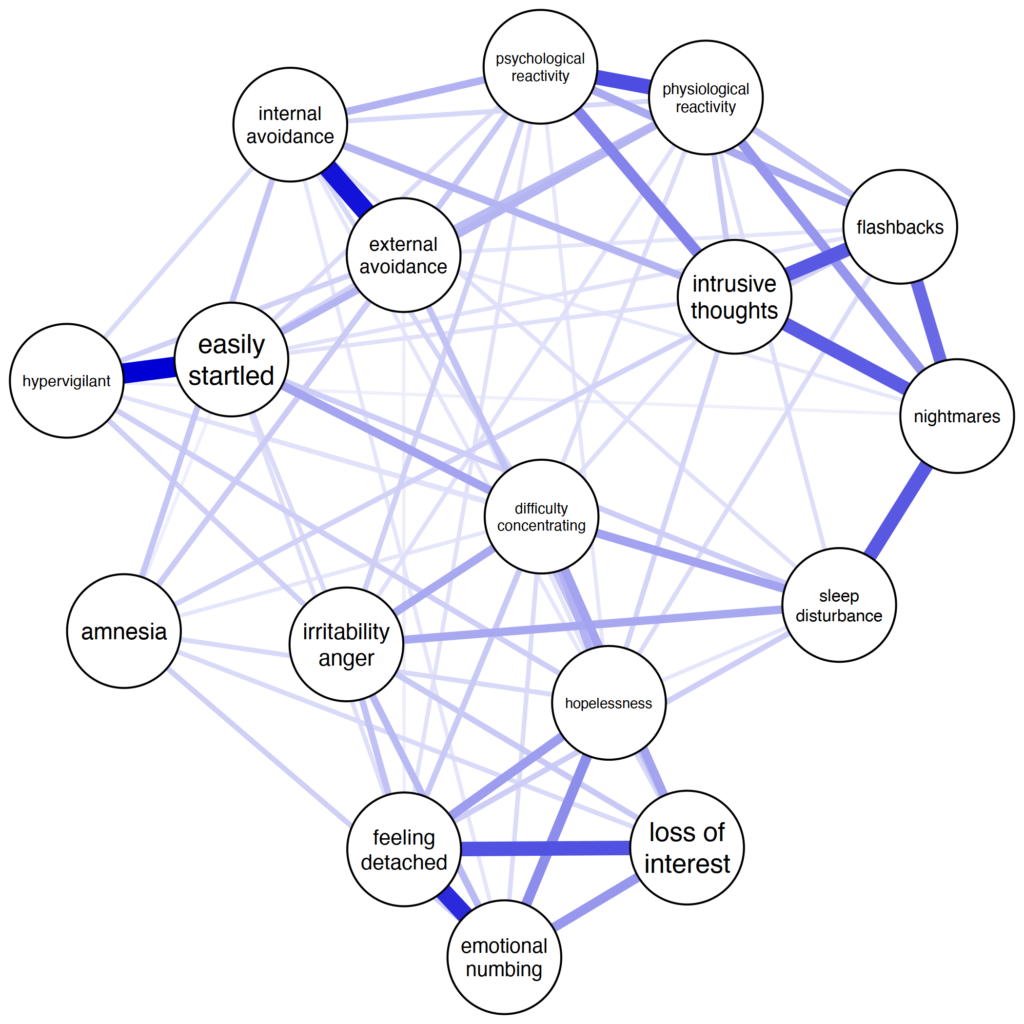ADELA ISVORANU
Dr Adela Isvoranu is an Assistant Professor at the NUS Department of Psychology. Her research focuses on novel methodological developments in psychological science, and their application to mental health research. Among Dr Isvoranu’s many laudable publications are an edited textbook, Network Psychometrics with R: A Guide for Behavioral and Social Scientists (Routledge, 2022), as well as a number of original research articles in top journals in clinical psychology and psychiatry, including Psychological Medicine, Journal of Abnormal Psychology, and Schizophrenia Bulletin. Network Psychometrics with R is currently in use in university classrooms around the world, including NUS, and has recently been translated into Japanese. Dr Isvoranu has also published work advancing the methodology of network models in Psychological Methods, the American Psychological Association’s flagship methodology journal. Her 2023 paper, ‘Which estimation method to choose in network psychometrics? Deriving guidelines for applied researchers’ (published in Psychological Methods and co-authored with NUS Psychology Associate Professor Sacha Epskamp), is a cornerstone paper in crystallising the field of network psychometrics and building a bridge between methodological and applied research in psychological science. The landmark article has already been cited 188 times since publication in August 2023, and is the first publication to guide applied researchers on best methodological choices in light of many different potential research questions in the field of network psychometrics. While early in her career, Dr Isvoranu has amassed an impressive number of prizes, including the Association for Psychological Science Rising Star award in 2024, as well as several prestigious grants, such as the NWO Talent Grant and the James S. McDonnell Foundation (JSMF) Postdoctoral Fellowship Award.  Dr Isvoranu’s work continues at NUS, through her Start-up Grant (SUG) project ‘Investigating Developmental Pathways from Mental Health to Mental Illness Through the Lens of Novel Methodological Frameworks’. This project, which runs from 2023 to 2026, builds upon her previous work and focuses on the identification of early risk factors for common mental health conditions in Singapore and beyond, and on continuing bridging methodological innovation and clinical research. Dr Isvoranu recently received the FASS Award for Promising Researcher (AER), which is presented to researchers based on the overall impact and strength of their research. The successful researcher would have “achieved consistent research excellence, produced a piece of research of great impact, and be recognised by the research community as having achieved a significant breakthrough.” |
|
We congratulated Dr Isvoranu and spoke to her about her research work. 1. What sparked your interest in approaching psychopathology from a complexity-based perspective?  I think it all started with the straightforward idea that mental health (and psychology in general as a matter of fact) is complex. If we think about mental health problems, we can think of them as systems of a lot of different things that interact: the biological makeup of a person, the social factors, the environmental factors, the psychological components. For instance, we all have a genetic makeup, we all go through different experiences, family interactions, stress, adverse life events… Some of us have higher resilience, some of us have lower resilience, some of us have better coping strategies than others. All these different aspects are so important when it comes to a person’s mental health. And while this all sounds straightforward when put like this on paper, when it comes to researching all these different aspects it gets tricky and difficult. Many of these processes are often studied in isolation, symptoms are thought of as being interchangeable and carrying little information, and research and clinical practice often don’t align very well. So, I think we need to do better in acknowledging that mental health is complex and we need to start embracing this complexity more when investigating psychopathology. |
|
2. Which researchers have most influenced your work?  Over the years, from when I was still a Masters student, I was very lucky to have wonderful mentors and colleagues from whom I learned so much. I hold a lot of respect for my PhD supervisors, Prof Denny Borsboom and Prof Jim van Os, who played a central role in shaping me into the researcher I am today. They have always encouraged independence, while offering guidance and support, and looking back I feel so lucky to have had their mentorship. They have introduced me both to the world of psychometrics and rigorous methodological research, as well as the clinical practitioner perspective, allowing me to model my work into building a bridge between methodology and clinical applications. |
|
3. You brought a substantial contribution to the novel research methodology in network modelling of psychological disorders. How do you see this as having an impact in other areas of psychological research? Network modelling of psychological processes grew very popular over the past decade and network models are now often used in other areas of psychological research. There are many applications in social psychology, with a focus on attitude research, intelligence research, personality research, educational psychology and beyond! I am very happy to see this field growing bigger and so many people from all over the world consistently working on further developing network modelling as a research methodology.  |
|
4. How can your research on the trajectories between mental health and mental illnesses positively affect how the medical community views and treats patients with symptoms of psychological disorders?  There is a recent blog post by Prof Jim van Os titled “Psychological suffering belongs to all of us – literally”, and I find this so so accurate. I think it captures the importance mental health holds in our contemporary world and that there is often no such thing as a black and white distinction between “mental health” and “mental illness”, but often a continuum on which most of us often take a spot. What is it that makes some people more vulnerable to experience severe symptoms compared to others? How can we work on better preventing these problems? My hope is that through my work, in time we will be able to better and more timely identify warning signals and ultimately help in improving prevention strategies and in building better resilience in the community. |
|
5. What is the value of focusing on the symptoms of psychopathology and their interactions, rather than syndromes, as you did throughout your groundbreaking work? I think symptoms and their interactions carry so much important information. For instance, if I didn’t sleep well last night, probably I will be very tired today. And if I am tired today, I will likely not concentrate very well while doing my tasks. Because of that I could make a silly mistake, which will stress me out, and in return I will ruminate over that and not sleep well at night again. Then it will start all over. This is a very simple example of a feedback loop that makes so much sense! And if you ask any practitioner how they approach their treatment and interactions with clients, this is something that they would very likely discuss during one of their sessions. However, from a research perspective, symptoms interactions have been rarely approached from this perspective, with much research focusing on syndromes and treating symptoms as interchangeable. The main reasoning behind this having been that once we find “the treatment”, all the symptoms will go away, similar to a treatable medical condition. In practice this is rarely the case and unfortunately progress in treating mental health conditions is slow. My research argues that focusing more on symptoms and their interrelations may contribute to improving our understanding of the aetiology of mental health conditions, acknowledging their complexity, and bringing new perspectives and progress into mental health research.  |
|
6. Which of your research studies are you most proud of and why? There is a lot of work that I did over the past years that I am really happy to have been part of, so choosing one research study is very difficult… However, I think my early paper on pathways between childhood trauma and psychotic symptomatology may still be the one I am most proud of. That’s because it’s the first-ever paper to introduce networks to the field of psychosis research, but also because we received a lot of positive feedback directly from patients, with some saying that it was the first time they felt research aligned with what they have experienced in their lives. Knowing this was so important to me and probably was the motivator behind continuing to do the work that I am doing. |
|
7. What are some of your most memorable teaching experiences at NUS? As I am relatively new to NUS, I don’t have a lot of exciting stories yet… However, I take a lot of joy in supervising and guiding students in their research projects. In the past year, I received a lot of feedback from my students saying that I have really helped them navigate the first steps of their research and especially helped them build a lot of confidence in themselves — and I think that’s so important and absolutely aligned with my goals as an educator.  |
|
8. Lastly, what research projects do you see yourself pursuing in future? I will continue my research on risk factors for mental health, as well as the methodological work that I do on the development of network psychometrics and complexity-based approaches to psychopathology. My work will continue to focus on bridging the worlds of methodology and statistics to the world of clinical psychology and mental health. Overall, my hope is that my research will contribute to early prevention strategies, advancement in mental health measurement, as well as towards bringing research and practice closer together. |
|
Thank you very much for taking the time to answer these questions, Dr Isvoranu, and congratulations again on being awarded Promising Researcher! |


